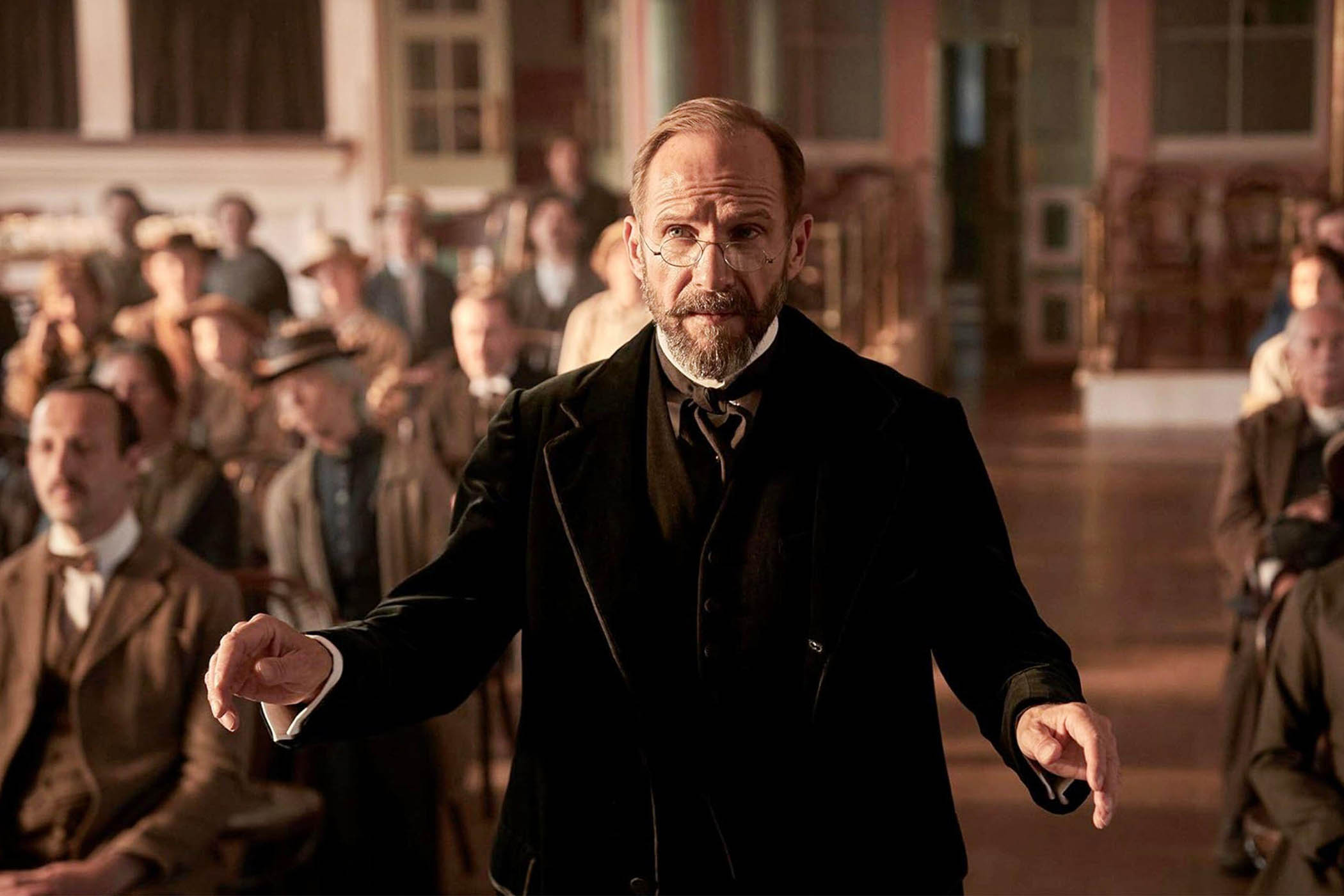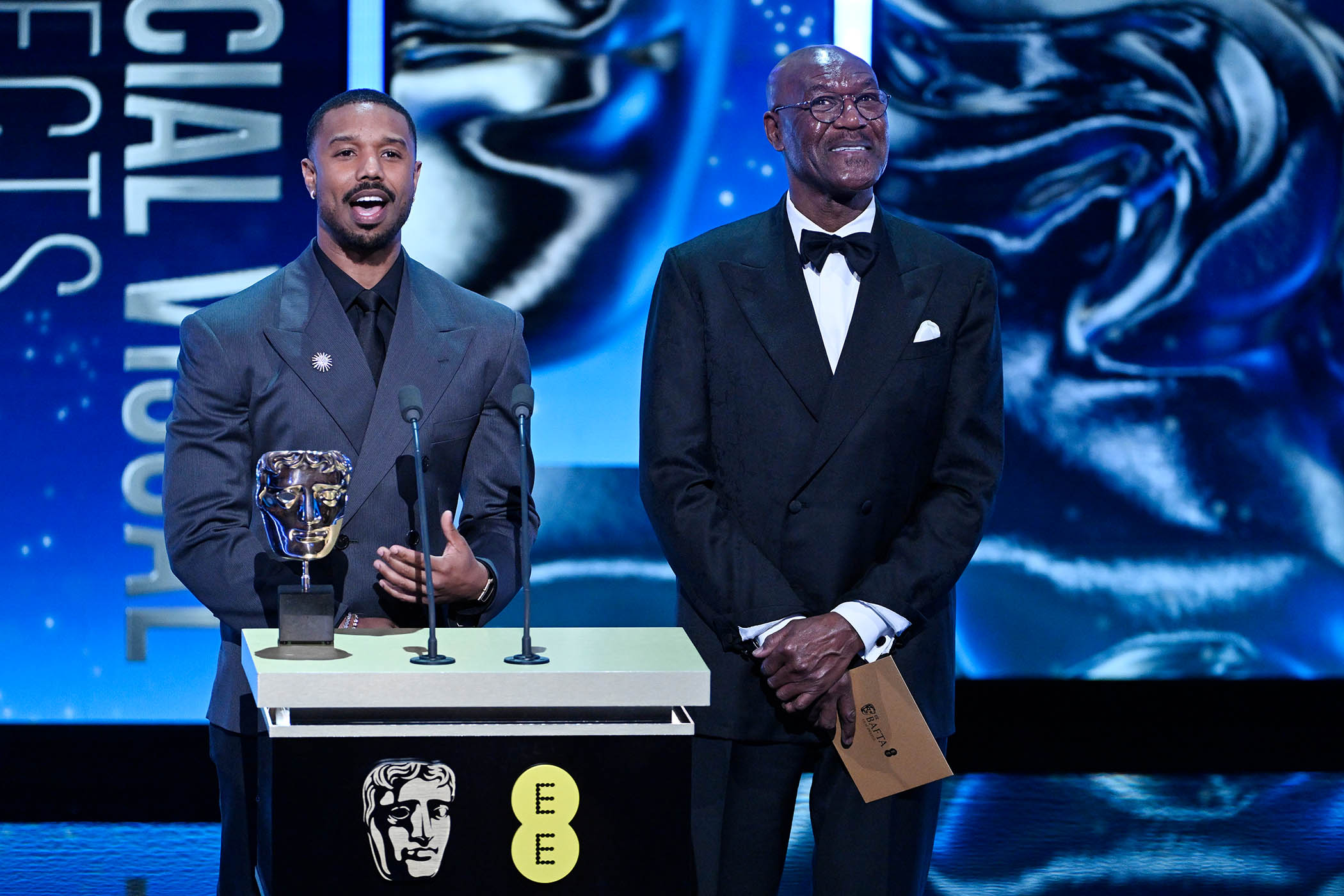It’s 1916 and Lofty, the teenage postboy of a parochial Yorkshire town, is desperate to lose his virginity before he is sent to the trenches. He knows the stakes. We meet him delivering bereavement telegrams to the town’s mothers and wives: his friend Ellis encourages him to “get in there” as a woman totters in tears at her open doorway. (“Grief. It’s an opportunity.”) Later in the scene, Ellis encourages him to harass a middle-aged widow reputed to be the town prostitute, as she walks home. These are the young heroes offered to us in Alan Bennett and Nicholas Hytner’s clunky new ensemble film, The Choral, led by Ralph Fiennes as the town’s Germanophile choirmaster.
Spoiler: Lofty does eventually lose his virginity. At the end of the movie, having failed at all attempts to obtain enthusiastic consent elsewhere, he returns to the prostitute, known as Mrs Bishop (played by Lyndsey Marshal). She admits to misgivings because his mother was a friend in her youth. (“I used to push your pram!”)
Soon, she’s reassuring him: half mother, half whore. Later, Lofty asks how much he owes. “It’s on the house,” she says. In Alan Bennett’s world, this is a wholesome gift, an act of charity to turn boy to man.
Female prostitution – or sex work, if you insist – has a long cinematic pedigree. As long as men have been making movies, they have served up good-time girls on screen: the first such depiction is thought to be in The Downward Path in 1900. (To satisfy Victorian-era morality, the heroine kills herself at the end, but not before she has a jolly knees-up dancing a jig on a cafe table.)
Censorship never dulled the subject’s appeal: films such as Minnelli’s Some Came Running (1958) and Dmytryk’s Walk on the Wild Side (1962) were produced under Hollywood’s restrictive Hays Code, but left viewers in little doubt about the true profession of their tragic, erotic heroines. In European cinema, prostitution often looks less fatal and more empowering – notoriously in the Catherine Deneuve vehicle Belle de Jour. As Séverine, a housewife who finds sexual fulfilment by working in a brothel, she introduced a generation to the myth of the happy hooker.
It was no coincidence that one of the most prominent Noughties British advocates of “sex work” took her nom de plume from the film’s title. The diaries of Belle de Jour, aka PhD student Brooke Magnanti, were filmed in 2007 as The Secret Diary of a Call Girl, starring Billie Piper. So we could watch Piper channelling Magnanti channelling Deneuve: this was screen culture constructing and then cannibalising its own scripts for prostituted women, regardless of the real-life consequences. (Magnanti was honoured in the BBC’s 100 women list in 2013 and 2014.) Her own “happy hooker” myth was shattered when she admitted she had first turned to prostitution to avoid homelessness after an expensive illness; her relationship with her father was troubled by his use of prostitutes.
For heterosexual male film-makers, the subject of prostitution is often an excuse to pay actresses to remove their clothes. (Even Julia Roberts, as Hollywood’s most palatable prostitute, strips off to silken underwear in Pretty Woman.) Bennett and Hytner (both gay men) are working in a different tradition, a comic mode closer to the tradition of Billy Wilder’s Irma la Douce or the Dolly Parton vehicle The Best Little Whorehouse in Texas.
At its lightest, this mode positions prostitution as a good laugh, and at its darkest frames it as public service, predicated on the assumption that all men are entitled to sex.
In The Choral, we’re invited to view the men who visit Mrs Bishop with indulgence: in one scene, played for broad comedy, two choir stalwarts engage in a row on her doorstep over her most convenient weekly slots. One, it is implied, has ”needs“ because his wife is catatonic with grief over the death of their soldier son. Let us hope he hasn’t picked anything up by the time they reconcile at the end of the film.
Despite Marshal’s talents, Mrs Bennett exists as a sex redistribution system, with no inner life. There are social costs to her profession – other women refuse to sit with her at choir– but we never learn about the economic history that might have led a widow here. Instead, when she declines to take payment from Lofty, the movie suggests the complete absence of economic pressure – this is a woman who can afford to give it away for free. That’s never been the reality for women in prostitution.
Newsletters
Choose the newsletters you want to receive
View more
For information about how The Observer protects your data, read our Privacy Policy
The truth is that every teenager slaughtered on the Great War’s battlefields deserved a longer life, regardless of whether they’d got around to having sex. Imagine an alternative film: a young man goes to war to die, confident in the knowledge that regardless of his sexual experience, his life has been meaningful; his death unjust. Young men will always jostle for sexual experience; movies will always reflect this. But our movie makers should recognise that no man is entitled to sex.
Photograph Sony Picture Classics



